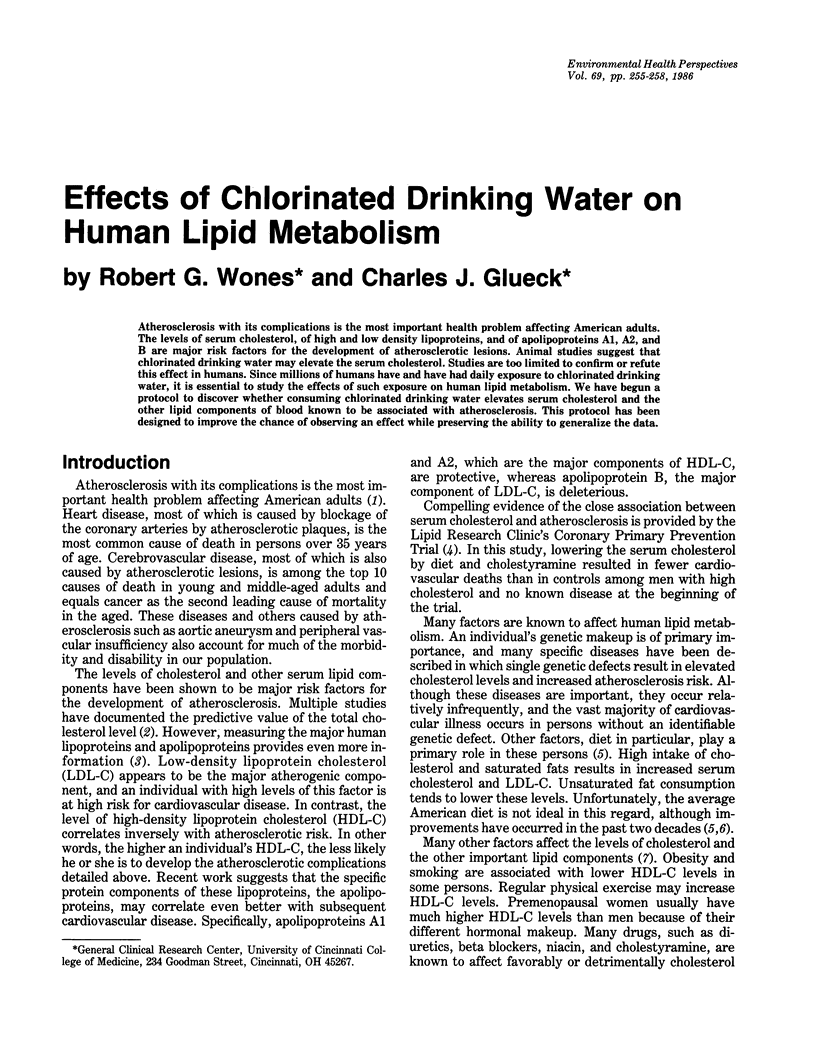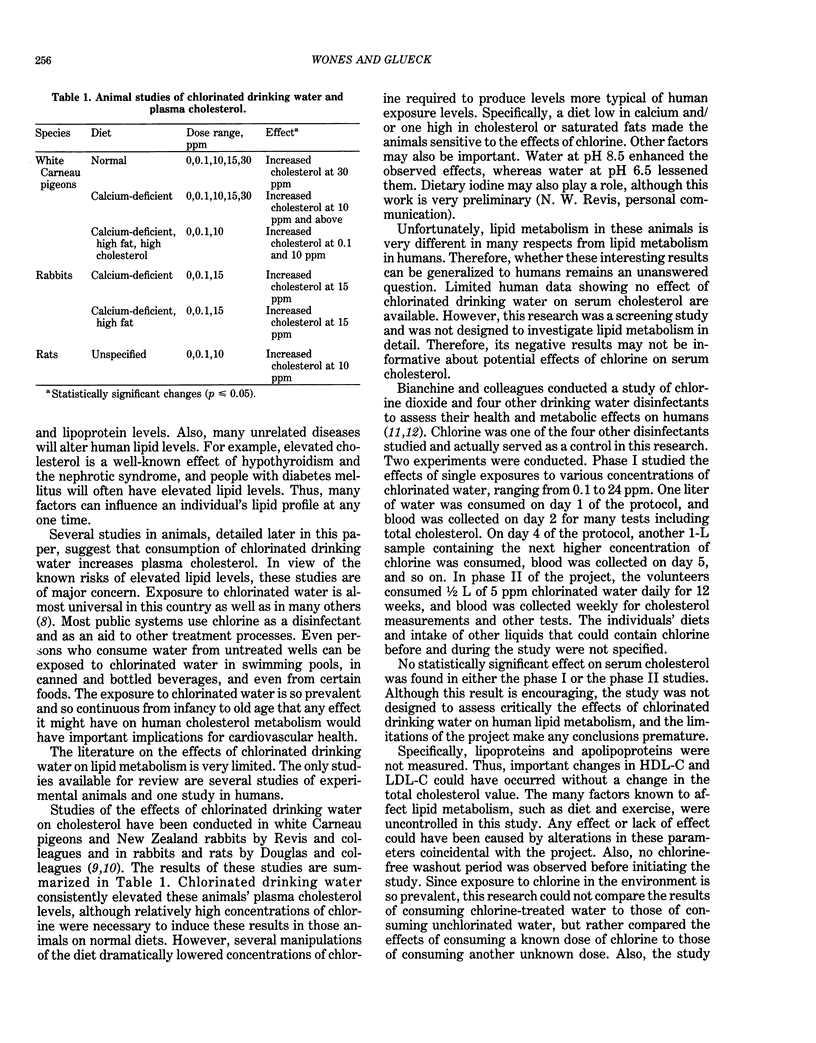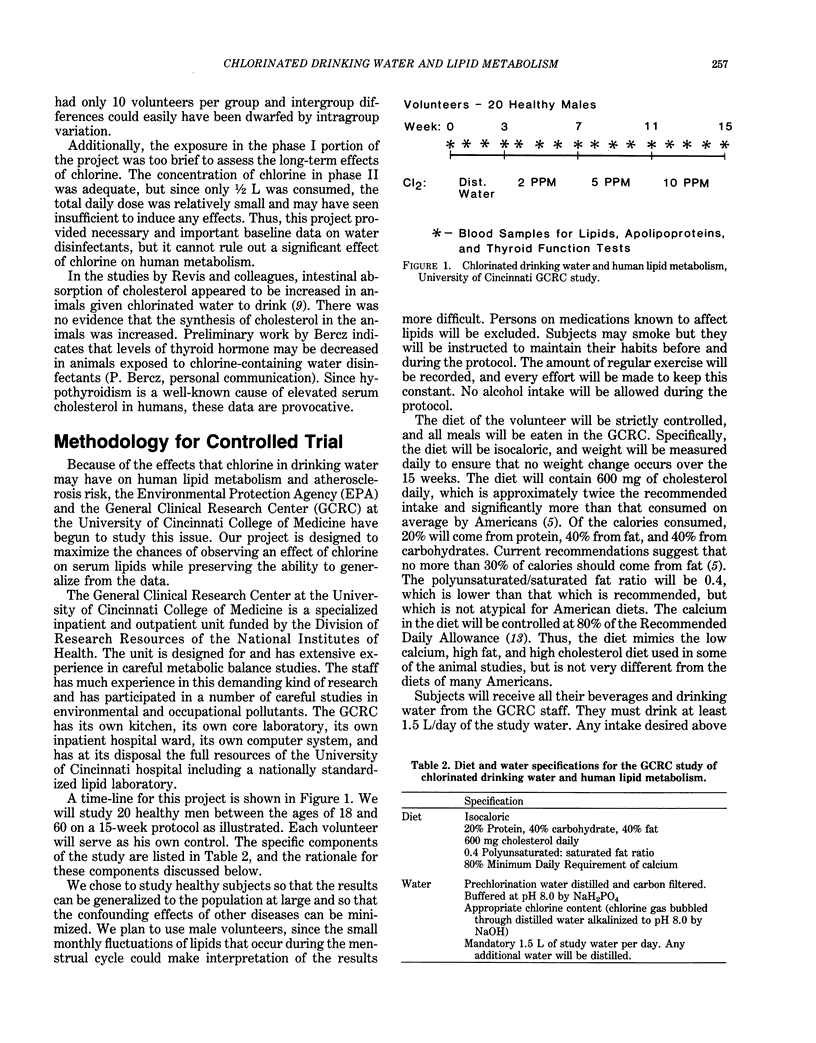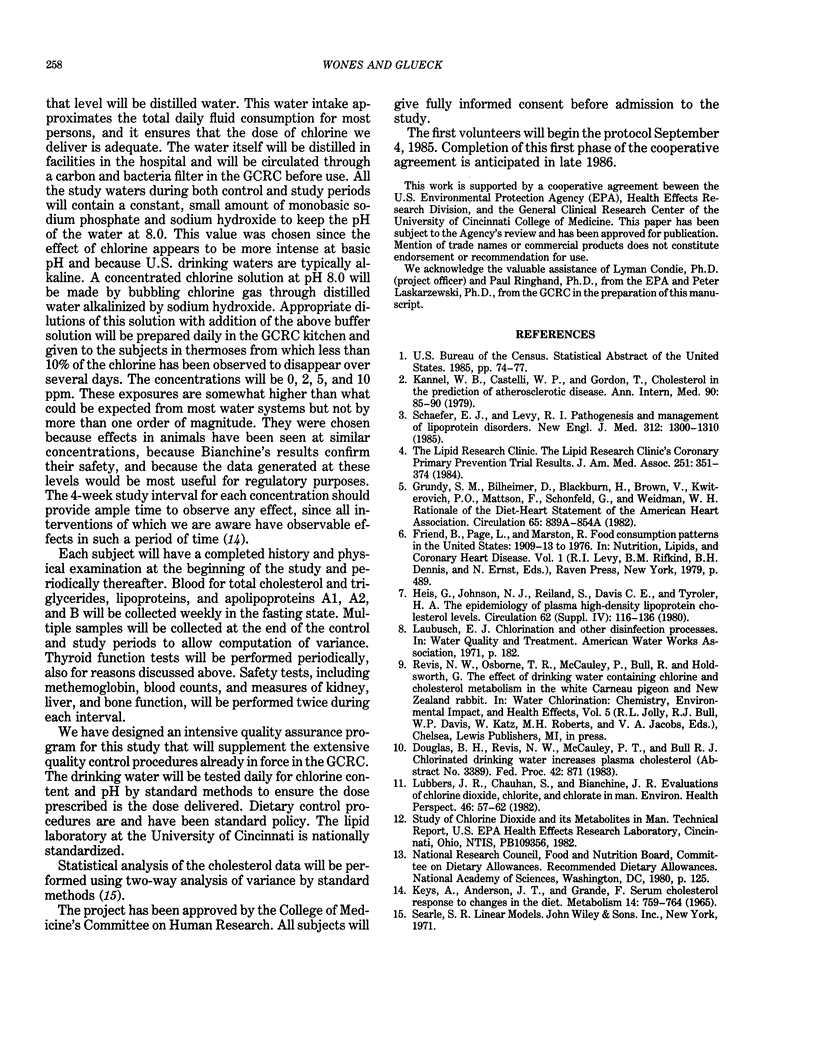Abstract
Atherosclerosis with its complications is the most important health problem affecting American adults. The levels of serum cholesterol, of high and low density lipoproteins, and of apolipoproteins A1, A2, and B are major risk factors for the development of atherosclerotic lesions. Animal studies suggest that chlorinated drinking water may elevate the serum cholesterol. Studies are too limited to confirm or refute this effect in humans. Since millions of humans have and have had daily exposure to chlorinated drinking water, it is essential to study the effects of such exposure on human lipid metabolism. We have begun a protocol to discover whether consuming chlorinated drinking water elevates serum cholesterol and the other lipid components of blood known to be associated with atherosclerosis. This protocol has been designed to improve the chance of observing an effect while preserving the ability to generalize the data.
Full text
PDF



Selected References
These references are in PubMed. This may not be the complete list of references from this article.
- Grundy S. M., Bilheimer D., Blackburn H., Brown W. V., Kwiterovich P. O., Jr, Mattson F., Schonfeld G., Weidman W. H. Rationale of the diet-heart statement of the American Heart Association. Report of Nutrition Committee. Circulation. 1982 Apr;65(4):839A–854A. [PubMed] [Google Scholar]
- Lubbers J. R., Chauan S., Bianchine J. R. Controlled clinical evaluations of chlorine dioxide, chlorite and chlorate in man. Environ Health Perspect. 1982 Dec;46:57–62. doi: 10.1289/ehp.824657. [DOI] [PMC free article] [PubMed] [Google Scholar]
- Schaefer E. J., Levy R. I. Pathogenesis and management of lipoprotein disorders. N Engl J Med. 1985 May 16;312(20):1300–1310. doi: 10.1056/NEJM198505163122007. [DOI] [PubMed] [Google Scholar]


